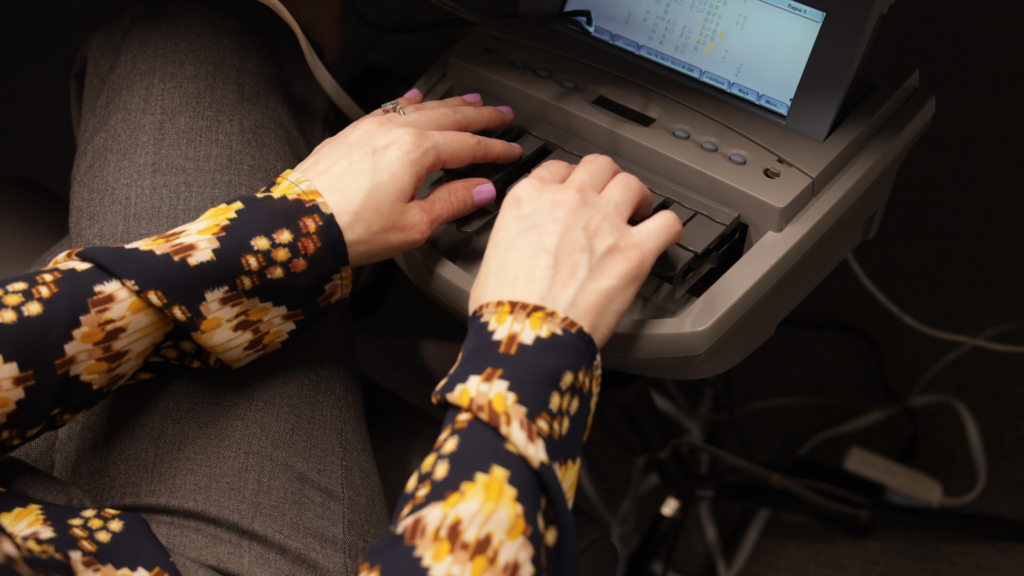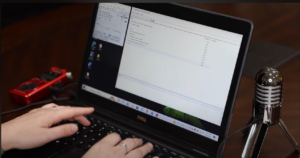Court Reporting Basics: What Does a Court Reporter DO?
 What is the purpose of court reporters?
What is the purpose of court reporters?
In basic terminology, the main task of a court reporter is to capture every spoken word during a proceeding and to identify who spoke the words. In decades past, this was done by a court reporter using shorthand — a method of fast writing where symbols are substituted for words and sounds. For the last 100 years or so, the stenotype machine has been used — which is a machine-based method of fast writing where keys make marks representing words, partial words, and sounds. There are, of course, ongoing efforts and evolving technology that may change how court reporting is done. So far, these mostly involve computer and software innovations.
Generally, the result of court reporting is a transcript of the words spoken at the proceeding — mostly now delivered in e-format of some sort. However, for court proceedings and for trials, in particular, there is still a demand for the nearly immediate ability to “read back” portions of the transcript while the proceedings are ongoing. This is possible with truly excellent court reporters with great experience.
When are court reporters needed?
In general, court reporters are needed in any proceeding where a record is needed or desired. Mostly, courts do not provide a court reporter or any ability to provide a transcript. In this regard, the major exception is federal court proceedings. Federal courts supply transcriptions of hearing, whereas most State courts do not. Court reporting is also allowed and used in some arbitration proceedings.
The other main task of court reporters involves litigation discovery. In particular, assistance with oral discovery pursuant to State and federal rules with respect to discovery and evidence depositions. In depositions, the court reporter’s job is, again, to capture every spoken word and, at some point, provide a transcript of the questions and the answers. Even if the deposition is being video-recorded, mostly, a court reporter is still engaged in the process of steno-typing. This is because, during a deposition, there is still the potential need for a real-time “read back” of some small portion of the transcript.
Do Court Reporters mark exhibits?
In some jurisdictions, another valuable service provided by a court reporter is marking and keeping track of documentary exhibits used with the witness. Exhibits are marked in various ways, usually with stickers, with hand-written notations, or in some other manner. Often, the court reporter is asked to keep the originals for inclusion/binding with the deposition transcript. This can be very helpful for lawyers since even the most organized attorneys might occasionally lose track of the exhibit numbers. This is very true when the number of exhibits is high, and both sets of counsel are using exhibits. Note that in some trial settings where no court reporting is provided by the court, the court reporter can be asked to keep track of trial exhibits. However, often, the trial judge will ask the court’s clerk to handle that task.
Contact Elizabeth Gallo Court Reporting Today
For more information, call the experienced court reporters at Elizabeth Gallo Court Reporting. We follow the best practices in order to provide excellent litigation support to our customers. Contact us today to learn about our services and how we can help you.






